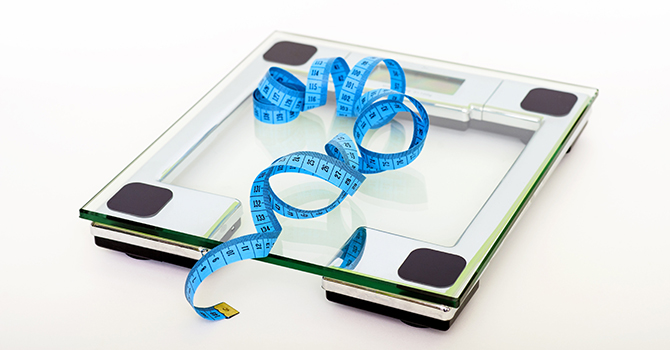Being Healthy without Dieting

Sean Bolourchi
MPH ‘18, Nutritional Sciences
How many have us have seen a television weight-loss advertisement with a claim like, "need to lose 30 pounds without dieting or going to the gym? Try this diet right now!"—and actually considered trying the diet? You're not the only one.
Many of us have been through this—because we want quick results.
Weight loss diets restrict people's caloric intake, so if you burn more calories than you take in, you will generally lose weight. The problem is that these fast-track weight loss diets are not sustainable. While people may lose weight initially, when they go back to what they normally eat, they often gain all their weight back, a phenomenon called weight cycling.
If you are looking to improve your health for the long-term, weight cycling is not the way to do it. I know this from personal experience as I have previously fallen into the weight-cycling trap.
A study conducted at the University of Minnesota examined the effects of dieting on long-term health markers. The results indicated that weight loss diets produced only minimum changes in diastolic and systolic blood pressure, fasting blood glucose, cholesterol, and triglyceride levels [1].
Another research group reviewed studies of long-term results of calorie-restricting diets to assess whether dieting is an effective treatment for obesity. The results revealed that one- to two-thirds of dieters re-gained more weight than they lost on their diets. The studies do not provide consistent evidence that dieting results in significant health improvements, regardless of weight change. In sum, there is little support for the notion that diets lead to lasting weight loss or other health benefits. [2]
Still not convinced calorie-restricted diets are not an effective way to lose weight? Many medical professionals speak in very clear terms about the realities of calorie restriction. Tracy Mann, associate professor of psychology at UCLA, says, "You can initially lose 5 to 10 percent of your weight on any number of diets, but then the weight comes back."[3] Similarly, Ashley Skinner, a pediatrician at UNC-Chapel Hill's School of Medicine, says ""Even if someone loses weight, they will always need fewer calories and need to exercise more. So we're putting people through something we know will probably not be successful anyway." [4]
It is evident that calorie-restricted diets are not the best way to lose weight and improve your long-term health. What should you do if you want to lose weight? The key is to make lifestyle changes that you know you can maintain long-term. Here are a few tips to help steer you toward a healthier lifestyle:
- Add green vegetables, onions, nuts, seeds, beans, and fruit to your diet.
- Reduce intake of refined carbs—white bread, white pasta, and so on—and dairy products.
- Drink more water throughout the day. Carrying a water bottle can help. Target consumption is half your body weight in ounces, e.g. a 150lb person would drink at least 75oz of water a day.
- Exercise 2–3 times a week. If this is difficult, try fitting in a 15-minute walk, making the last 5 minutes a brisk walk to increase heart rate further.
References
- Tomiyama, Janet, et al. "Long-Term Effects of Dieting: Is Weight Loss Related to Health?" Social and Personality Psychology Compass 7/12 (2013): 861–77.
- Mann, T., Tomiyama, A. J., Westling, E., Lew, A.-M., Samuels, B., and Chatman, J. Medicare's Search for Effective Obesity Treatments: Diets Are Not the Answer. American Psychologist 62/3 (2007), 220–33.
- Wolpert, Stuart. "Dieting Does Not Work, UCLA Researchers Report." newsroom.ucla.edu, 3 Apr. 2007.
- Brown, Harriet. "The Weight of the Evidence." slate.com 24 Mar. 2015.
About the Author
Sean Bolouchi has a Master's in Public Health in Nutritional Sciences from the University of Michigan School of Public Health. His work focuses on applying data and technology to healthcare systems for faster and more efficient healthcare delivery.
